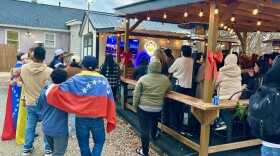Scrolling through the comments on her article published in the online news platform Latino Rebels, Roosbelinda Cárdenas found a picture of herself alongside a lively discussion of her race. Non-Latinx white users weighed in, confident she did not meet their standards of whiteness. Others used their own genetics and apparent non-whiteness as evidence against her own assertion of whiteness.
It was all familiar banter to Cárdenas, who is used to being called güera in the tiendas of New York City and among her family in Jalisco. When travelling, she notices the easy invitation into all-white social circles. Cárdenas clearly acknowledges the ways U.S. society marginalizes non-English speakers, immigrants and their children. Yet she elaborates that “racial blindness tends to be compounded by our experiences with other forms of discrimination—which can look and feel a lot like racism but should not be conflated.” Her assertion of whiteness is not a proud claim, as it might have been for a second-generation Sicilian or Irish person. Cárdenas refers to her whiteness as a weight of responsibility.
Writing the article is one way she is working to dismantle the supremacist system that offers her privileges denied to her darker-skinned cousins. It is a difficult weight to pass on to her teenage daughter, who is already questioning the definitions placed on her by classmates. Cárdenas talks with host Frank Stasio about the uncomfortable conversations she is initiating with other white Latinxs. She is a co-dean of institutional diversity and inclusion and an assistant professor of anthropology and Latin American studies at Hampshire College.









